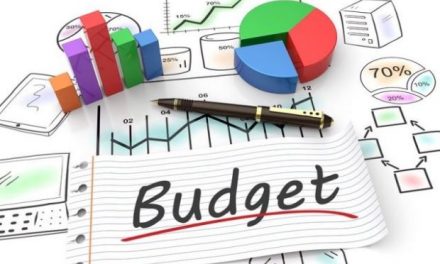Thursday, the 7th of October 2021, President E.D Mnangagwa delivered his state of the nation address. This comes at a time when there are so many burning issues in Zimbabwe. We are currently seeing lots of contentions and public outcries regarding exchange rates. We are also seeing public discourse on vaccine-related issues. If you can find time to browse through Twitter you will see lots of discussions and debates around these areas and more. The SONA is always an interesting event as we get to see the trajectory government will be taking. Here are some of the noteworthy business and finance-related takeaways from it:
Calls For More Focus On Zimbabwean-Made Products
The President highlighted that we must look inwards more. He encouraged citizens to deliberately settle for locally-made brands. He tied that to the fact that more and more Zimbabwean-made products are dominating shopping outlets. He also had something to say to local industry players. He implored them to expand their research and development (R&D) efforts. He said they should look into broadening the range and variety of Made In Zimbabwe products. He tied this to the manufacturing sector which is benefitting from the Import Substitution Strategy and Local Content Policy.
He Applauded The Transformational Nature Of ERRP2
ERRP2 stands for Emergency Road Rehabilitation Programme (Phase 2). He cited that the initiative is bringing about positive outcomes all across the country. He pointed out that ERRP2 is stimulating three fundamental things that benefit local Zimbabweans. First off, the initiative is encouraging and enabling the appropriation of local resources. Secondly, it is empowering local contractors and even creating employment in the process. Thirdly, the commuting and the trading public are now enjoying added convenience.
Increased Youth Involvement In Agriculture
He also applauded the increased number of young people now running successful agribusiness ventures. He highlighted that this will see more land being put to good use. Resultantly this will ensure food security moving forward. It is true of course that more and more young people are now into agriculture in Zimbabwe. He also added that there is a need to explore resilient farming approaches in light of climate change challenges.
He said the government is working on making sure farmers are promptly paid for crop deliveries. He indicated that value addition of crops such as tobacco and cotton are being explored. He hinted at plans by the government to source and avail an additional 3000 tractors and 200 combine harvesters. All this is geared towards improving farm mechanization in Zimbabwe.
Projected Economic Growth
He said, “My administration is buoyed by the upward growth trajectory of our economy. This year’s projections indicate an over 7.8 per cent economic growth”. This did rattle some feathers as many people reacted on Twitter, for example. Several people questioned the authenticity of these projections given what is happening on the ground. Someone questioned how there is growth when 2 litres of cooking oil now costs ZWL$600. Parallel exchange rates have been spiralling out of control as well. All in all, these economic growth projections are heavily debated.
The President indicated that those projections are premised on several things. Some of them are the previous agricultural season which was successful. Cumulative tobacco sales exceeded 210 million kilograms – export earnings surpassed almost US$600 million. Cotton production surged by a 100-fold to 92000 tonnes.
He also cited the good mineral prices on the international market. He coupled that with the fact that there have been increased efforts in expanding mineral exploration in the country. Thus new mines are being opened as well as closed ones being opened. He highlighted that this year the mining sector is projected to grow by 11 per cent.
Additionally, he mentioned stable inflation and exchange rates – highly disputed aspects! Lastly, he attributed the projections to considerable progress that has been made in containing the pandemic.
The Foreign Currency Auction System
He said that the financial sector is stable owing to the foreign currency auction system. He said the platform can now be accessed by any business. He emphasized that government will see to it that the platform is efficient and adequately resourced. However, it is no secret that the auction system is being abused. Several entities and individuals are accessing foreign currency on it and abusing it later on.
It is also no secret that the auction system is hurting the economy and ordinary citizens as well. Many Zimbabwean employers are selling products or services using rates twice the official rate or even more. Then they in turn pay employees pegging their salaries using the official rate.
Power Generation
He said that the government is concerting its efforts in pursuance of completing and commissioning Unit 7 and 8 at Hwange Power Station. He referred to renewable energy augmentation projects which he said are on track. Chief amongst them is nationwide solar power generation – something that I feel is being largely slept on. Lately, load shedding has become the order of the day in many parts of Zimbabwe. This is ironic when you consider the vast untapped solar power potential in the country. With just solar power generation alone Zimbabwe can be set for life.
Transportation
References were made to the procurement of modern buses that have been going on. He also mentioned the setting up of digital systems for VID, CVR, and ZINARA. He indicated that this will all positively impact Zimbabwe’s transport management system. He welcomed the coming in of Qatar Airways as that will smoothly link us to the Middle East. He also pointed out that efforts are underway to grow our national career’s serviceable fleet of planes. This is in addition to rehabilitative and expansion works being done at RGM International Airport, JMN International Airport, Kariba, Buffalo Range, and Grand Reef Airports.
These are 7 of some of the noteworthy issues mentioned in the SONA. There remains a lot that has to be done especially regarding monetary and fiscal policies. Many policies inconsistencies are hurting any meaningful progress.








